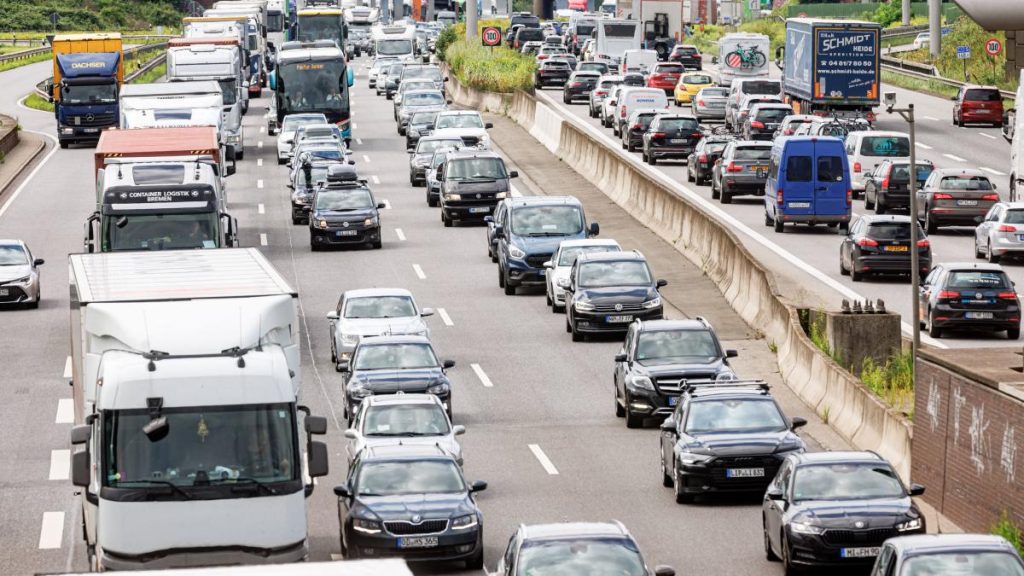In 2023, experts have found that the transportation sector in Germany has significantly exceeded its climate target. The independent expert council for climate issues has reported that instead of the allowed 133 million tons of CO2, the transportation sector produced 146 million tons of greenhouse gases. This marks the third consecutive year that the transportation sector has missed its climate goal. Additionally, the building sector also narrowly missed its target, according to calculations by the German Environment Agency. The expert council is calling for an immediate action program to address these concerns.
The expert council is demanding an immediate action program from Transport Minister Volker Wissing of the Free Democratic Party. While Germany saw a strong overall decrease in emissions of around ten percent last year, the transportation sector exceeded the maximum allowable CO2 levels by a significant margin. Wissing had threatened with weekend driving bans as a means to pressure for a swift reform of the climate protection law which aims to abolish this obligation. Despite uncertainties, the expert council confirmed the substantial decrease in emissions last year, attributed more to economic slowdown and favorable weather conditions than to effective climate protection policies.
When individual sectors fail to meet targets, the responsible ministries in the German government are required to implement immediate action programs. However, the existing measures have proven to be insufficient, as highlighted by the expert council. The specific climate goals for different economic sectors have been a point of contention for the Free Democratic Party. While the coalition government has reached a broad agreement on reforms to focus on overall greenhouse gas reduction targets, disagreements over the details have stalled progress, with concerns raised by the Green Party. Transport Minister Volker Wissing recently mentioned the possibility of driving bans if the current regulations are not replaced soon.
The situation has worsened since the climate plans proposed last summer were deemed inadequate, with the subsequent ruling by the Federal Constitutional Court causing further setbacks. The resultant cuts in the government budget also affect the Climate and Transformation Fund, a key source for promoting environmentally friendly industrial transformation in Germany. This has led to reduced funding for climate protection measures, impacting the prospects of achieving the expected reductions in greenhouse gas emissions. The implementation of climate protection programs in the building sector is also seen as less ambitious, with some measures in the transportation sector expected to have reduced effectiveness and an increase in car traffic observed.
The expert council is a scientific body tasked with assessing the preliminary data on greenhouse gas emissions from the previous year in accordance with the German Climate Protection Act. While final data will only be available next year, the council’s findings raise concerns about Germany’s ability to reduce greenhouse gas emissions by 65% compared to 1990 levels by 2030. The country aims to achieve climate neutrality by 2045, where emissions are balanced by offsetting measures. The need for immediate action in the transportation and building sectors is highlighted, as Germany works towards its ambitious climate targets amidst challenges such as funding cuts and policy disagreements within the government.


